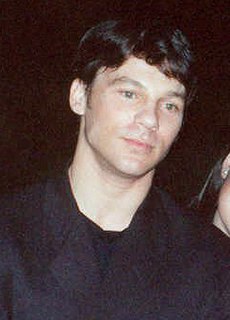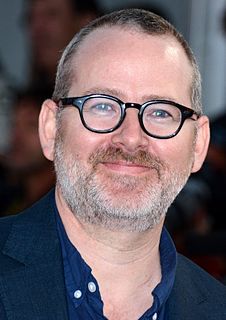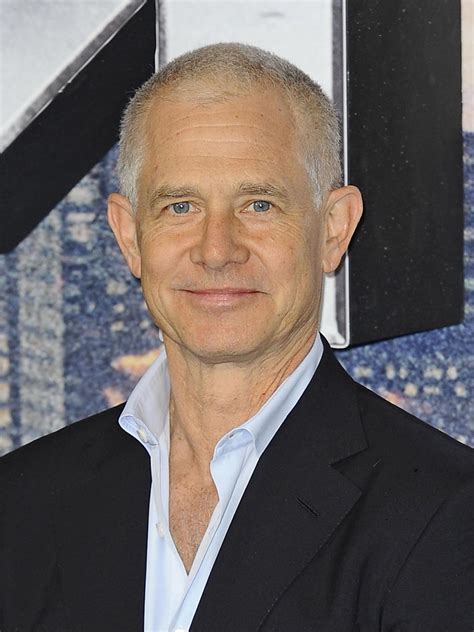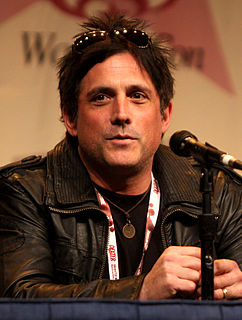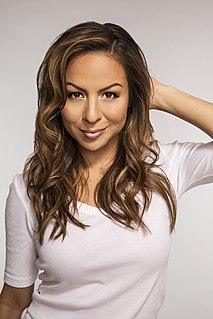A Quote by Orson Scott Card
...You believe that the kind of story you want to tell might be best received by the science fiction and fantasy audience. I hope you're right, because in many ways this is the best audience in the world to write for. They're open-minded and intelligent. They want to think as well as feel, understand as well as dream. Above all, they want to be led into places that no one has ever visited before. It's a privilege to tell stories to these readers, and an honour when they applaud the tale you tell.
Quote Topics
Above
Applaud
Audience
Because
Before
Believe
Best
Dream
Ever
Fantasy
Feel
Fiction
Honour
Hope
Intelligent
Kind
Led
Many
Might
Minded
Open
Open-Minded
Places
Privilege
Readers
Received
Right
Science
Science Fiction
Science Fiction And Fantasy
Stories
Story
Tale
Tell
Think
Understand
Visited
Want
Ways
Well
World
Write
Related Quotes
I've found great virtue in two-thirds of the way into the message; right before I'm really want to nail home a point, pausing to tell a joke or to tell a light-hearted story, because I know my audience has been working with me now for 20 or 25 minutes. And if I can get them to laugh, get oxygen into their system, it wakes up those who might be sleeping, so there's something about using a story to draw people back in right before you drive home your final point. In that case I think it's real legitimate just to use a story for story's sake.
I think the key for us is really letting the stories we feel are best told to kind of dictate where we go. When we find a story we really believe is one that should be told, how do we best tell it and you know what do we need to tell that story most effectively? I think to the good, the universe is such that there are a lot of options, there a lot of opportunities. So that's kind of what's guiding us.
I'm very grateful to be in a position now where I have a lot more control to tell the stories I want to tell. I feel no obligation to tell any one story. I will tell you my interest mostly lies in telling stories about empowered women, but I don't feel it's an obligation. But I do feel like I am servicing a voice.
Life is painful sometimes. It touches everyone, so you may as well try to look for other answers and find peace. So, it is difficult to write those types of things because nobody wants to tell sad stories. I think that I'll always tell stories about human hope. I would love to be able to tell somebody, "It's okay. It's all right. Be a good person." That's what my job is, in life.
Memoirists, unlike fiction writers, do not really want to 'tell a story.' They want to tell it all - the all of personal experience, of consciousness itself. That includes a story, but also the whole expanding universe of sensation and thought ... Memoirists wish to tell their mind. Not their story.
I test the movies a lot, and if the audience says they love the movie, we know we're on the right track. And if they tell me they hate it, I try to figure out what I've done wrong. But every time out, the audience wants me to go deeper, they want to know more about the characters, and they don't want these movies to be shallow. So they really urge me to tell them a complicated story, and then when I do so, they're thrilled
The very act of story-telling, of arranging memory and invention according to the structure of the narrative, is by definition holy. We tell stories because we can't help it. We tell stories because we love to entertain and hope to edify. We tell stories because they fill the silence death imposes. We tell stories because they save us.




